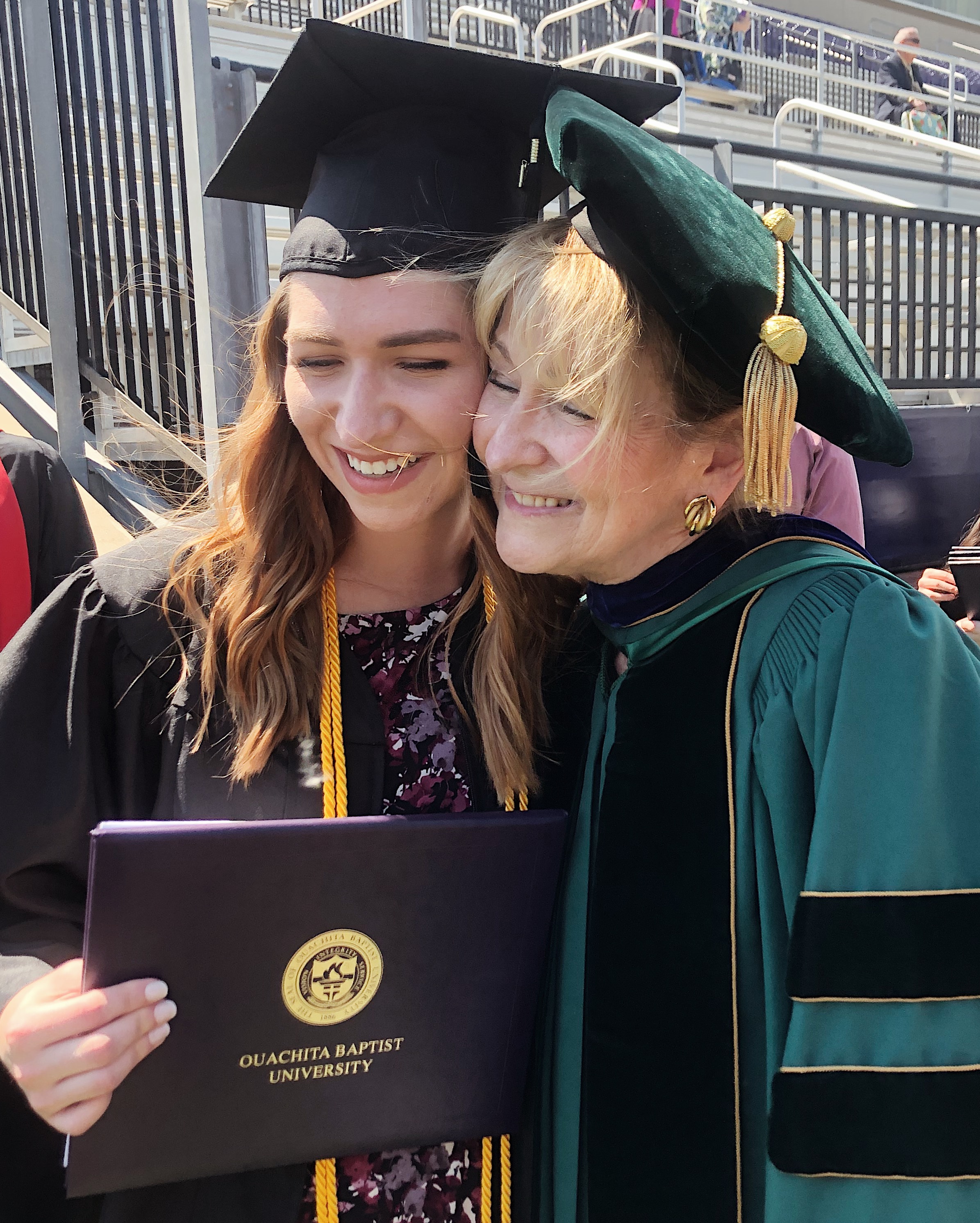Five years ago today I started my freshman year of college. In some ways, it feels like decades ago. Looking at my life now, there are several things I wish I knew before college. Although I don’t necessarily regret my experience, I could have done some things differently if I had known then what I know now. If you are a college student or will be starting soon, I hope you’ll keep these things in mind!
1. Sleep is essential
I know very few people will probably take this seriously but at least I can say I tried. 🙂 Your grades and sanity largely depend on getting enough sleep, as does your physical health. The responsibilities you take on as a college student can be incredibly overwhelming and exhausting, which is why I wish I knew to take sleep more seriously before attending college.

Many times I would feel myself approaching a breaking point and needed a nap to get through the day. Even when I was determined to finish my homework and sleep later on, I was often more focused and refreshed after putting the unfinished homework aside and getting some sleep. I also experienced quite a few all-nighters dedicated to memorizing study guides and starting papers the night before they were due. It was exciting when I received a perfect score after one of these ordeals, but it was almost as equally upsetting when my body suffered the consequences.
It truly is amazing what our minds and bodies can do when placed under pressure, but it’s also amazing what they can do when given adequate rest and fuel. Save the all-nighters for emergencies and, in the meantime, create a routine that works for your body. If you’re more productive late at night, avoid the early morning classes so you can sleep in, and vice versa. Do what works for you — just make sure you don’t neglect sleep.
2. Take advantage of school resources (you’re paying for them!)
Another thing I failed to take seriously while in college was the access to school resources like fitness centers, counseling, tutoring services, and even food. These amenities are not free. The cost is often worked into your tuition, which means you should be taking advantage of everything available to you. Remember: your university is your home for the next four years (give or take a couple), so learn how to make the most of it. You are not just attending class there, you are living there — so act like it!
Pay attention during orientation and campus tours as this is when you are informed of these amenities (I never even got a campus tour haha). You can also learn about different resources through emails, announcements, and faculty. If you find yourself too busy trying to remember homework deadlines and where everything is during your first few weeks (this was me), try to revisit these options when you feel more familiar with your school and routine. I certainly wish I knew to pay more attention to these things before college.
For me, it took a couple years to embrace my college as my home and take advantage of these resources. It wasn’t until my junior year when I realized I could save money on coffee by getting it from the dining hall where I went almost daily as a university caterer. At this time I was also living in an apartment that was right next to a gym but saved money by using the fitness centers on campus. By the next year I was exploring more leisure activities and taking advantage of the university tennis courts. I also wish I had set time aside to see a counselor prior to graduating as this is when my anxiety became more severe. Hopefully it won’t take you long to experience whatever benefits are offered to you.
3. Check your email — religiously
While attending college, everything is communicated through email. This is how professors, event coordinators, administrators, and faculty communicate with university students. If you don’t check your email regularly you may miss important information about canceled classes, giveaways, contests, housing applications, scholarships, class registration, events, deadlines, internship opportunities, and more.
I recommend checking your email after waking up, before and after each class, during meals where possible, and before going to bed. Learn from my mistakes — I still don’t do this, and I get frustrated with myself every time I see a full inbox. Checking your email is an important part of being an adult as well as a student. If you can build this habit while attending school, it will be easier to continue doing after you have graduated and work in a professional setting.
4. Go to class
Depending on your university and professors, you may be given a lot of freedom when it comes to attendance. Some professors have an attendance policy that your grade depends on. Other professors don’t have an attendance policy at all — which sounds great when your class is boring and you have no desire to be there, but it can be detrimental for your grade if you never go.
I learned this myself when I basically stopped attending one of my classes midway through the semester. I justified this decision because I couldn’t understand what my professor was saying even when I did attend the class, and I usually ended up doing other homework during every lecture he gave. After failing a couple online quizzes because I didn’t take the class seriously, an attendance bonus would have given my grade the boost I needed to finish with an A in the class, but I had already forfeited that option. In general, I knew I needed to attend class to understand the content, but I wish I had known to take it more seriously before college.
It will be incredibly tempting to skip class some days (or maybe most days), especially if there is no immediate penalty, but I strongly recommend attending as many classes as possible for at least the first half of the semester. This way you will gain a better understanding of how each professor teaches and grades, which will help you either maintain or raise your grade later in the year when you have more assignments and exams. You may even find that you have more freedom at that time and can afford a couple absences, or perhaps you will realize you learn the course content better by conducting independent readings and attending university tutoring.
5. Take internships and volunteer work seriously
If you ever applied for a job or built a resume before attending college, you might have been discouraged by your lack of experience. This is okay and perfectly normal — it’s very hard to get a good job without experience, but in order to gain experience you need a job, right? Fortunately for college students, there are programs, clubs, and work-study positions on campus that are literally made for students, with or without experience, to help you gain experience. I wish I knew to take these opportunities more seriously before college.
One of my biggest regrets from college was not taking advantage of the opportunities for which I didn’t need any qualifications to be qualified for. If you apply for one of these positions, you should still anticipate and prepare for an interview as well as show you are passionate and able to take your position seriously, but your lack of experience can’t hold you back. Be honest and upfront with your employer or supervisor about the skills you may be lacking and seek to gain. If they aren’t willing to train you or coach you, they aren’t really doing their job.
Another significant source of experience are the internships professors build into your degree plan and require for graduation. Resist the urge to look at any internship requirements with dread and instead look at them as opportunities to gain experience or build a portfolio while you are in school. If you aren’t sure where to start, ask your professors and the faculty within your department because, again, that’s what they are there for. You can’t blame them for your lack of experience at the end of your college career if you never took advantage of the opportunities they provided.
6. Your professors are your best friends
That leads me to my next point. Your professors are there to teach you, not intimidate you. A little intimidation is good if it motivates you to work harder and respect them, but you shouldn’t be afraid to talk to them. Whether you’re at a smaller university or attend one with tens of thousands of students, make an effort to talk to your professors.
Introduce yourself on the first day of class and tell them you are grateful to be there. You can also ask for their advice on how to succeed in their class (especially if you’ve struggled with that particular subject before) because, after all, they will know the content best. This isn’t a ploy to get them to like you. This is a way to distinguish yourself from the rest of the class and help them remember you if you ask for clarification or advice later on. I did this with several professors, but wish I knew before college what kind of impact it would have.

Even if you never need to email or speak with your professor outside of class, I believe this simple act can actually help your professors do their job well. Teachers of all kinds do not receive the recognition they deserve. In addition, they know when they are teaching a class students don’t want to take. Expressing your gratitude and eagerness to learn under them, whatever the subject, can help them take their role more seriously.
Healthy student-faculty relationships are also important for internships and references you may later need. In many fields today, who you know is considered more important than what you know. This means a good reference and good connections could help you earn your desired spot within a company or academic program.
7. Do the extra credit assignments!!!

Before attending college, I thought extra credit assignments were just assignments to complete if I was bored or needed to raise my grade. I quickly learned, however, that I could use these assignments more to my advantage and have more flexibility in class. I was often able to complete extra credit assignments during slow weeks when I didn’t have as much homework to do, which then gave me a safety net when I had to later submit papers and take exams I didn’t feel very confident about.
Extra credit assignments also allowed me to get ahead and get out of completing some assignments. When I was in college, the best semesters were the ones during which I put the most effort in at the beginning of the year and then didn’t have to try as hard towards the end. By finals week, I sometimes had enough extra credit or earned enough points in a class overall to be able to skip the final exam and still maintain an A. I wish I knew to do this before college so I could have applied it to every semester, and I highly recommend trying this to alleviate some academic stress.
8. Make at least one friend in every class
Before going to college, I wish I knew I needed to take making friends in class more seriously. Not including your professors, it’s important to become friends with at least one classmate per class you attend. Speaking from personal experience, my least favorite classes were the ones in which I didn’t really know or get to know anyone. I also struggled more to feel motivated and keep my grades up in those classes.
This is not a coincidence. Even if you study better on your own, having another person in class to discuss your questions and frustrations with can make it less overwhelming. It can also give you other perspectives to learn from and even drive you to work harder (especially if you’re a little competitive). Having a supportive group of classmates also helped relieve social anxiety and academic pressures for me.
You will also likely get sick at some point during each semester, and when that time comes, you will need class notes for the days you are unable to attend — especially if you are sick during an exam review. There were days when I felt miserably sick and still went to certain classes because I didn’t have anyone to communicate with about assignments. Being able to depend on other students can alleviate so much stress. In addition, everyone takes notes differently, so even if you never miss a day, it really helps to have multiple friends in one class with different study habits and understandings.
9. Don’t force friendships
I can’t express how important friendship is — in life and especially when you’ve entered into a new experience. Going to college is a very strange and unique season of life. It’s hard to go through life alone, so finding people to do life with is essential. Of course, this is easier said than done, especially when it comes to finding the right kind of people.
One of the best things about being an adult is that you finally (hopefully) start to take control of your circumstances and the circles you are a part of. I wish I knew this and practiced it when I first began attending college. You might find yourself in class with a lot of the same people, or are scheduled with the same few coworkers, or can’t escape your quirky neighbors — but you get to choose how deep or shallow your connection is to those people. Please do not feel obligated to commit your time and energy to friendships that only drain you.
You may choose to keep some people at arms length so that the relationship never progresses beyond friendly greetings in the quad or small talk during class. Alternatively, you may invite them to events outside of class and share your deepest, darkest secrets with them. The choice is yours. Even if you only end up with a couple friends who are really close to you, I would argue this is better than a hundred superficial ones.
10. Learn to be alone
While I don’t recommend going through your entire college experience alone, I would also encourage you to embrace your independence and enjoy any moments you have to yourself. Before college, I wish I knew that a little solitude from time to time can be good for your soul and for self-reflection, which is especially necessary when you are navigating your next steps in life. You may discover you are a very different person when you aren’t surrounded by other people, or perhaps you don’t know who you are at all. This is a good time to explore any questions you have and learn yourself.

This is also a good time to get comfortable with being on your own and less dependent on other people. You don’t have anyone to go to the caf with? Go by yourself. There’s a show you want to see but none of your friends are interested? See it anyway. There’s a new coffee shop you want to visit but nobody’s schedule lines up with yours? Take yourself on a coffee date. During any of these solo outings, you may meet new people you never would have met in a group, and you may even have more in common with them than with the friends you currently have. There’s nothing wrong with this. It may be a little uncomfortable at first, but once you see that you can do it and survive, you will learn to be very comfortable with it.
11. You can’t be every type of person
Please, for the love of all things good, learn how to say no. Don’t spread yourself too thin and don’t compromise who you are. You can’t participate in everything or find belonging in every single clique, and this is okay. Maybe you’re an intricate individual who finds ways to relate to everyone you interact with, but it’s unlikely that you will actually like everyone and be equally accepted everywhere you go.
You can also have multiple different interests and commitments but they can’t all be equally elevated. What I mean by this is that you can strive to be a good student who loves football and social outings and is saving money for a summer vacation, but you can’t get perfect grades, be on the football team, go to every party, and also work a full-time job. This is unrealistic and unsustainable. You may be able to achieve this temporarily but you will quickly reach burnout. Before college, I really thought I needed to be involved in more, and I wish I knew to not put that pressure on myself.
Finding a balance will take time but is possible as long as you are honest with yourself about which commitments are giving you life and which ones are leaving you empty. In addition, sometimes you will have to make sacrifices. Class and work may not be your favorite activities but might be the most important part of your college career. Alternatively, you may not care about having a social life but still need a support system, which may require putting yourself out there. During the semesters when I was working multiple jobs, I regret not having a more active social life or not taking some assignments more seriously.
My last year of college felt the most balanced of all of them… even though it was during a pandemic. I was working but not overworking; I was studying and making good grades but not losing sleep; I was exercising but also properly fueling my body; I was spending time with friends and hosting gatherings but also established social boundaries and maintained them; I was investigating my beliefs but also clung to the joy and peace I experienced as a Christian; and I also felt my emotions very deeply but did not let them control or overwhelm me. It wasn’t perfect, but it was better than it had been in previous years.
12. Participate in events (or don’t go)
When I attended my freshman orientation, I was not in a good place mentally or emotionally and did not have the energy or desire to make friends. Unfortunately, I also wasn’t emotionally mature enough to recognize this. I pushed myself to attend every event that week and most other events that took place throughout the rest of the semester, but I was incredibly quiet and distant, so it usually ended up feeling like a waste of time.
For this reason, I became very intentional about which events I attended. If I didn’t have the energy to participate, I probably didn’t go. If I didn’t have the energy but thought it would still be worth it, I could sometimes push myself and really enjoy what I was doing. Sometimes it’s just a matter of getting over yourself and venturing beyond your comfort zone. Other times it means sacrificing something you could actually benefit from — whether that’s a weekend alone, a full night of sleep, or an extra hour to study for a test.
Be spontaneous — but if you’re going to be there, be all there. If you don’t have the energy to be all there, don’t go. I wish I knew to do this before I started attending college. I would’ve skipped some of those orientation events, cared less about football that year, and focused more on class participation. The good news is, you have time to figure it out.
13. You don’t have to join a sorority
Joining a sorority can be very beneficial for making connections and gaining support during your very first year of college. Not only will you be united with like-minded people who become lifelong friends of yours, you will also be connected with alumni who can possibly provide you with unique opportunities in your postgrad life. For this reason, if you’re unsure of pledging, I would recommend at least rushing so you can gain a better understanding of what each group is like, and you might be pleasantly surprised.
At the same time, sororities and social clubs are not everything. There are limits to these clubs and the people they embrace. Some can be incredibly exclusive while others are open to everyone. It’s okay to feel like you don’t fit perfectly into a single club. It’s also okay to belong to one group but have friends who belong to others. Try to avoid putting labels on other students who are in a particular club or sorority, and don’t adopt the mindset that one club is better than the others.
Unfortunately, as a student I often felt torn between two groups of people — those who were fiercely independent and despised social clubs, and those who were completely dependent on their club for finding an identity and purpose while in college. It was difficult for me to understand this imbalance. I admit I went through a phase in which I looked down on social clubs and cliques of any kind, but I quickly realized that isolating myself was not the solution. Your connection (or lack of connection) to a particular club does not define or limit you, and this is something I wish I knew before college.
14. Take your breaks seriously

From Thanksgiving break to summer break and even your weekends and federal holidays — these breaks are incredibly necessary and should not be taken for granted. For my senior year of college, our breaks were almost completely removed from the university calendar in order to condense the school year during the pandemic. Having fewer breaks may have meant fewer opportunities for travel and spreading the virus, but it also meant faster burnout. I wish I knew to take breaks seriously before I went to college instead of learning this during my final year. I quickly realized how significant our scheduled breaks were, not only for our academic success or social lives, but also for our physical and mental health.
Breaks from class and deadlines, however short or long, are essential. These breaks provide opportunities to sleep (because even though it’s on this list, you’ll still end up sacrificing sleep from time to time), catch up or get ahead on reading and homework, study for tests, clean and organize your living space, schedule important appointments, see your friends and family from home, travel, work more hours if you have a job, and turn your mind off for a bit. You should carefully consider what kind of break you need most, whether one involving lots of rest and solitude, or one full of people and commitments.
Winter and summer breaks especially provide more time to make money between semesters if working during the school year isn’t a realistic option for you. You can get a summer job and apply to be a seasonal worker at some places, giving you the opportunity to return after the fall semester without having to go through the hiring process all over again. Having a job or two during college can help you build your resume and gain experience, whether general or relating to your field of study.
While working and saving money between semesters can be very beneficial, if you can afford to take your entire summer or winter break off from work, I would recommend it. Depending on your career after college, you will rarely (if ever) have the opportunity to take two or three months off from work until your retirement. So take advantage of this time! Learn a new hobby, get a unique certification, focus on physical fitness, or strengthen your spiritual life. You will return to the grind feeling refreshed and ready for more.
15. Study abroad

I went into college knowing I wanted to study abroad but didn’t take it very seriously. By the time I finished my freshman year of college, the opportunity to study abroad was the only thing convincing me to go back the following year. If you are in college simply because you don’t know where else to go but aren’t confident that you should be there either, it may be time to study abroad. Studying abroad won’t fix everything or provide complete clarity, but it will give you new perspectives and incredible life experiences.
To this day, studying abroad is one of the best decisions I have ever made. If I never studied abroad in college, I wouldn’t have the perspectives or courage I have today. I still struggle with anxiety in many areas of life, but traveling is not one of them. One semester of traveling in Europe taught me more about life and myself than most semesters at my university. I cannot stress how important it is to get outside your comfort zone and experience a way of life different from your own. Studying abroad is an easy way to accomplish this and, if you hate it, it’s only for a few months. 😉
16. Take electives early
If electives are a requirement for your degree plan, I recommend taking some within your first and second year of college — and be adventurous. Take classes you are interested in even if they have nothing to do with your degree. You may decide to minor in a different field than your major, or you may change your major altogether, but even if you don’t, you will likely be able to apply the skills you learned to some other area of your life.
Although I benefitted from having some electives later in my college career, I do wish I knew to take more within the first year to help me determine what I wanted to focus on for my degree. I regret not embracing my creative side more and still find it hard to believe I didn’t have a single art or photography elective. I also think I could have benefitted greatly from a marketing or communications class. If you’re going to spend the time and money going to college, you should be able to push yourself outside of your comfort zone and explore other interests that support you personally in addition to your professional ambitions.
17. Take it slow
Having said that about electives and studying abroad, I know you may be thinking there’s not enough time to explore other interests or opportunities that don’t directly contribute to your degree. You may be going into college with enough credits to start as a junior and your goal is to graduate in two years. This takes serious ambition as well as some sacrifice. I encourage you to spread out your commitments and take it as slowly as possible.

When I started my first semester of college I wanted to get out of there as quickly as possible. I had no intention of staying longer than three years, and after finishing my first year I wasn’t sure I would return at all. Even though earning a college degree was a huge achievement, I sometimes felt like I was putting my life on hold. Spreading my degree out across four years actually gave me more freedom to make other commitments while attending college as a full-time student. I never expected it, but taking it slow made my experience more meaningful.
18. Learn to be flexible
To expand on my last point, taking things slow can provide more opportunities to be flexible with your time. The more time you have, the more freedom you have to choose how to spend it. Spacing out your classes will leave room for change, which is very probable in college. Be open to dropping classes, adding new ones, changing majors, adding minors, getting a job, going on that spring break trip, joining clubs, and trying things that pique your interest.
I held back a lot in college because I told myself to stick to a rigid plan. I wish I knew to be more flexible before attending college. Plans are great (I love planning) but plans also change. You can’t predict everything that will happen in the next year or four years of your life, so don’t put that pressure on yourself or worry about other people judging you for being inconsistent. Try to remember that everyone else is trying to figure out their path, too, so they’re probably not as concerned about your life as you are.
If aren’t confident in what you are studying or what you have planned for the next five to ten years of your life, remain fluid. This way you will be able to adapt to the environment and circumstances you find yourself in, without panicking or feeling stripped of your control. I’ve reached a point in my life in which I don’t want to be locked into anything I can’t get out of or can’t find purpose in. I don’t want to get stuck, and I would encourage having a similar approach when it comes to college, at least for the first couple of years.
19. The best days of your life?
You will likely never have another opportunity like this — that is, one in which you are not obligated to have everything figured out. This is another reason why you should take it slow and try to enjoy your time in college. You might be an adult but there are still people present to support you and walk you through your college experience. Once you graduate, you may find yourself on your own, starting at the bottom of your career ladder and burdened with student loan debt. Don’t be afraid of this (I promise it’s not that bad), but learn to seriously appreciate the time you have in college to prepare for it.
It won’t be perfect. My first year of college was actually incredibly dark and challenging for me. I felt like I was there out of obligation rather than desire and was ready to start my own life as an independent adult. College felt restricting. With time, however, it provided me with amazing opportunities and allowed me to process my growing pains. I wish I knew to appreciate it more while I was there. I didn’t need to go to college, but I’m really grateful to have had those four years that modeled me into the person I am today.
20. It’s okay if you’re not ready
I think this is the most important piece of advice I can give when it comes to college. Even as someone who went to college and obtained a degree, I know college is not for everyone. Sometimes going to college makes the most sense after graduating high school but sometimes people go simply because they don’t know where else to go at that point in life (this was me).
I felt motivated to go to college mainly because I wanted to leave home, gain independence, and keep up with my friends, all while earning a degree. Even while my family was giving me the option to take a gap year, I was worried it would put me behind, or that if I didn’t go at that time, I might never go. It seemed like everyone I knew was going to college, and I was scared of being left out or getting stuck where I was.
I have since learned that I was wrong in so many ways. In reality, it’s possible to gain independence in other ways, like by getting a job or learning skills they don’t teach you in college. Even if the job you get is only to save money or pay bills and isn’t ”what you really want to do,” you will probably end up with a similar job during the summer or after graduating (if you go to college before you know what you actually want to do with a degree). I thought I was avoiding this by going to college, but I was really just postponing it, and I wish I knew this before going to college.
In addition, I quickly realized how drastically friendships change when you become an adult. Staying in touch is incredibly hard when you have so many new commitments and are learning a new routine. Even as you stay in touch, it will soon become apparent to you that going to college isn’t as popular or “normal” as you may think. Depending on your social circles, it may seem like everyone is doing it but there are plenty of young people in life who chose not to go to college and are doing just fine. While making important life decisions, you can receive input from those closest to you, but you shouldn’t worry about your friends moving on without you — you’re all going to change anyway.
If you are anxious about going to college, I hope you will consider this advice. There are, of course, several things I was told before going to college that did not truly sink in until I experienced them, because we often do not really know something until we experience it for ourselves and personally understand. As you go, keep in mind, life experience is not only gained in college. Traveling, working, and conducting your own research are amazing ways to experience life and grow as an individual.
